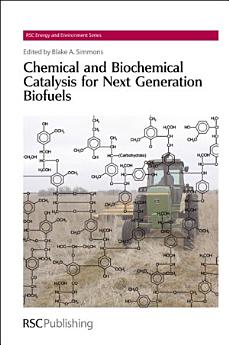Chemical and Biochemical Catalysis for Next Generation Biofuels
Blake A Simmons
Aug 2011 · Energy and Environment Series Book 4 · Royal Society of Chemistry
Ebook
206
Pages
reportRatings and reviews aren’t verified Learn More
About this ebook
The development of renewable and sustainable lignocellulosic biofuels is currently receiving worldwide attention and investment. Despite decades of research, there remain significant challenges to be overcome before these biofuels can be produced in large volumes at competitive prices. One obstacle is the lack of efficient and affordable catalytic systems to dissolve and hydrolyze polysaccharides into sugars. These sugars are then fed to microrganisms and fermented into biofuels. The price of these catalysts, be they biological, thermochemical, or chemical in nature, represent one of the largest costs in the conversion process. There are a number of catalytic schemes, each with their own advantages and disadvantages, available. This book presents a general yet substantial review of the most promising processes and the spectrum of biomass pretreatment, enzymes, chemical catalysts, and hybrid approaches of hydrolyzing biomass into fermentable sugars. It is the only currently available book that compares the biochemical, chemical, and thermochemical conversion processes to biofuel production.
About the author
Dr Blake Simmons is at the Sandia National Laboratories/Joint BioEnergy Institute, Emeryville, CA, USA.
Rate this ebook
Tell us what you think.
Reading information
Smartphones and tablets
Install the Google Play Books app for Android and iPad/iPhone. It syncs automatically with your account and allows you to read online or offline wherever you are.
Laptops and computers
You can listen to audiobooks purchased on Google Play using your computer's web browser.
eReaders and other devices
To read on e-ink devices like Kobo eReaders, you'll need to download a file and transfer it to your device. Follow the detailed Help Center instructions to transfer the files to supported eReaders.







